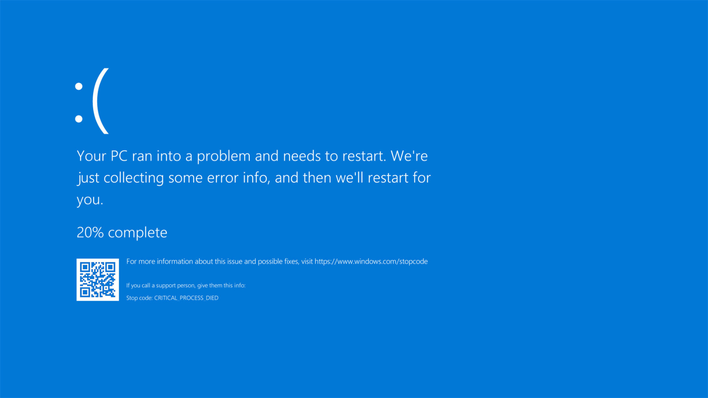
Did you recently get served the big update to Windows 11 24H2? The upgrade, which would have been called a Service Pack once upon a time, comes along with the new Copilot AI features as well as the usual stack of OS add-ons. Unfortunately for some, it also brought along a less-welcome partner: blue screens of death.
The specific issues that we’re writing about today manifest in the form of “Critical Process Has Died” and “Kernel Data Inpage Error” crashes, and they seem to primarily affect users with Western Digital SSDs. On that company’s community forums, there’s a lengthy thread with many users reporting problems in the “stornvme” driver.
What’s the issue? Well, we don’t know for sure, but it’s definitely related to the Host Memory Buffer (HMB) feature. HMB is a part of the NVMe specification that allows an SSD to request an amount of system memory to be used as a cache for the SSD. This helps reduce excess writes to the storage device and also improves performance.
We know that because of a workaround fix that hurts performance, but restores stability. The fix is to whip out Registry Editor, head to the HKEY_LOCAL_MACHINESYSTEMCurrentControlSetServicesstornvmeParametersDevice key, create a DWORD (32-bit) value named “HMBAllocationPolicy”, and then set its value to 0. This will disable Host Memory Buffer on all SSDs in your system, but it should allow you to continue using the machine.
According to WindowsLatest, the issue is that WD’s SSDs are requesting a 200MB HMB, and Windows isn’t handling that gracefully. In Windows 11 23H2, HMBs were limited to just 64MB globally, masking the problem. This issue is is common enough that Microsoft has reportedly paused the rollout of Windows 11 24H2 while it works out a more permanent solution than simply disabling the important HMB feature.